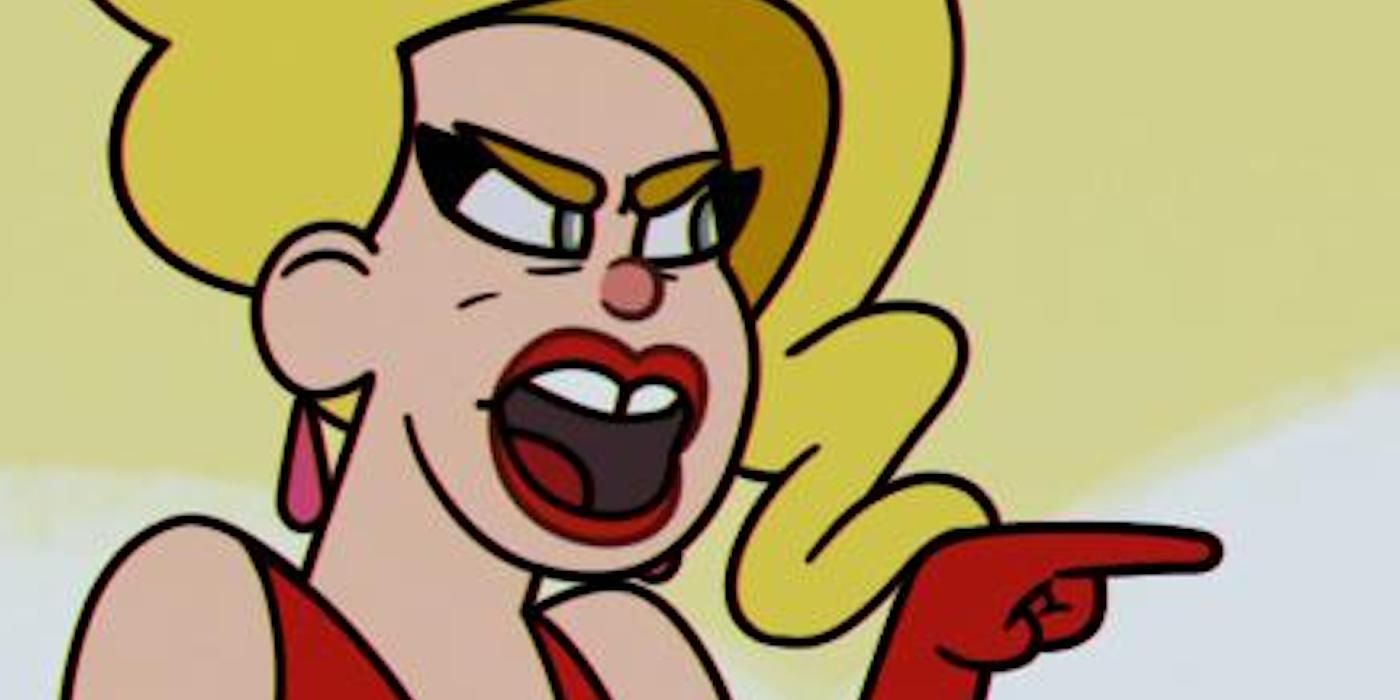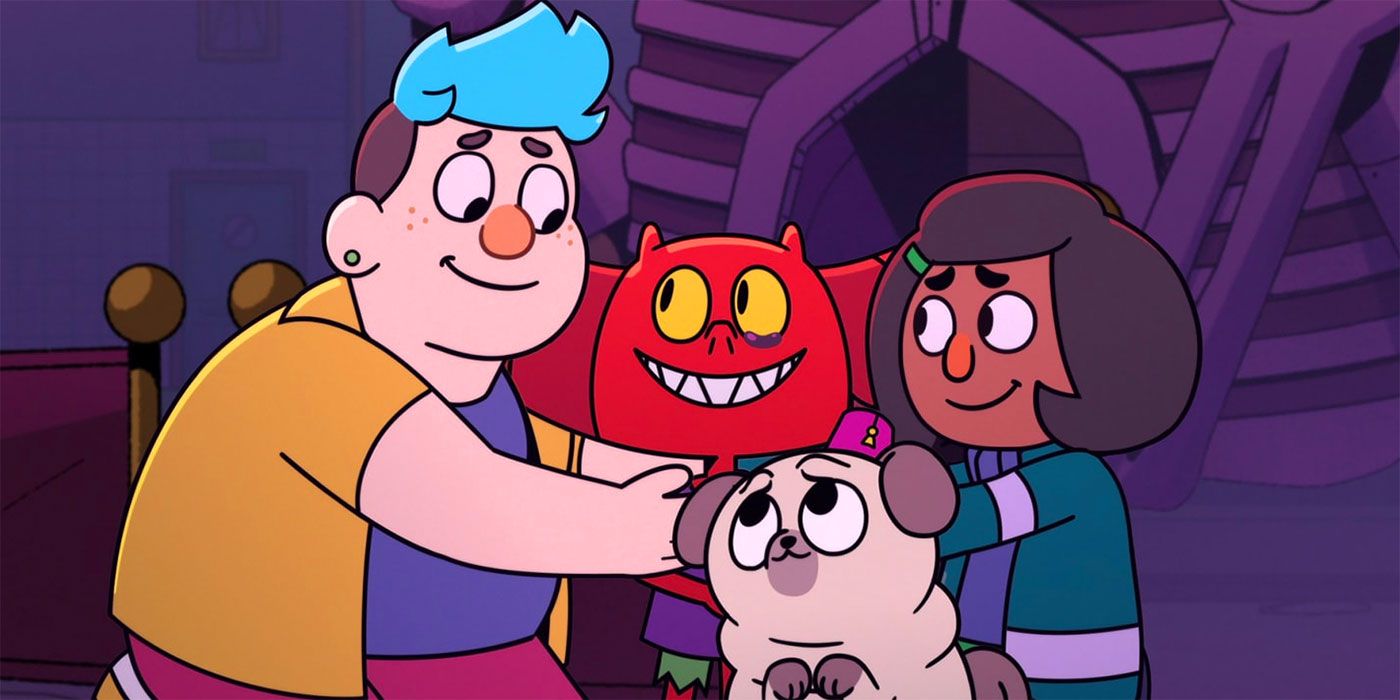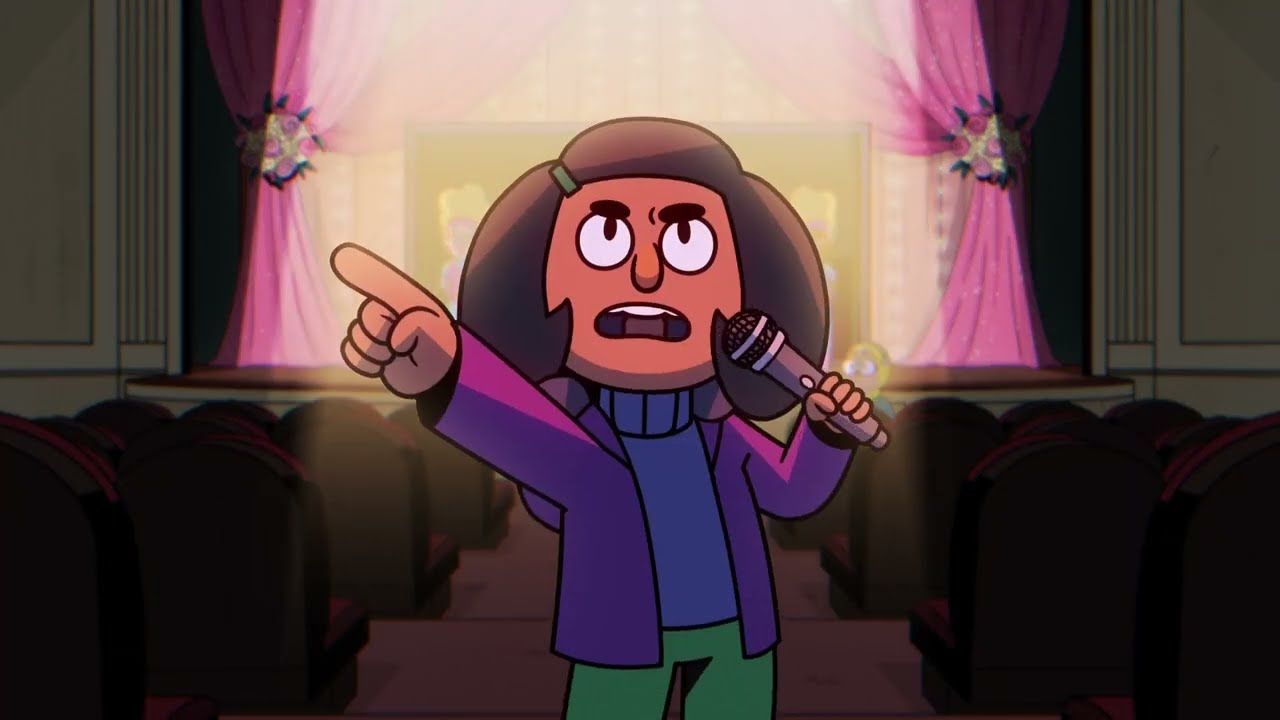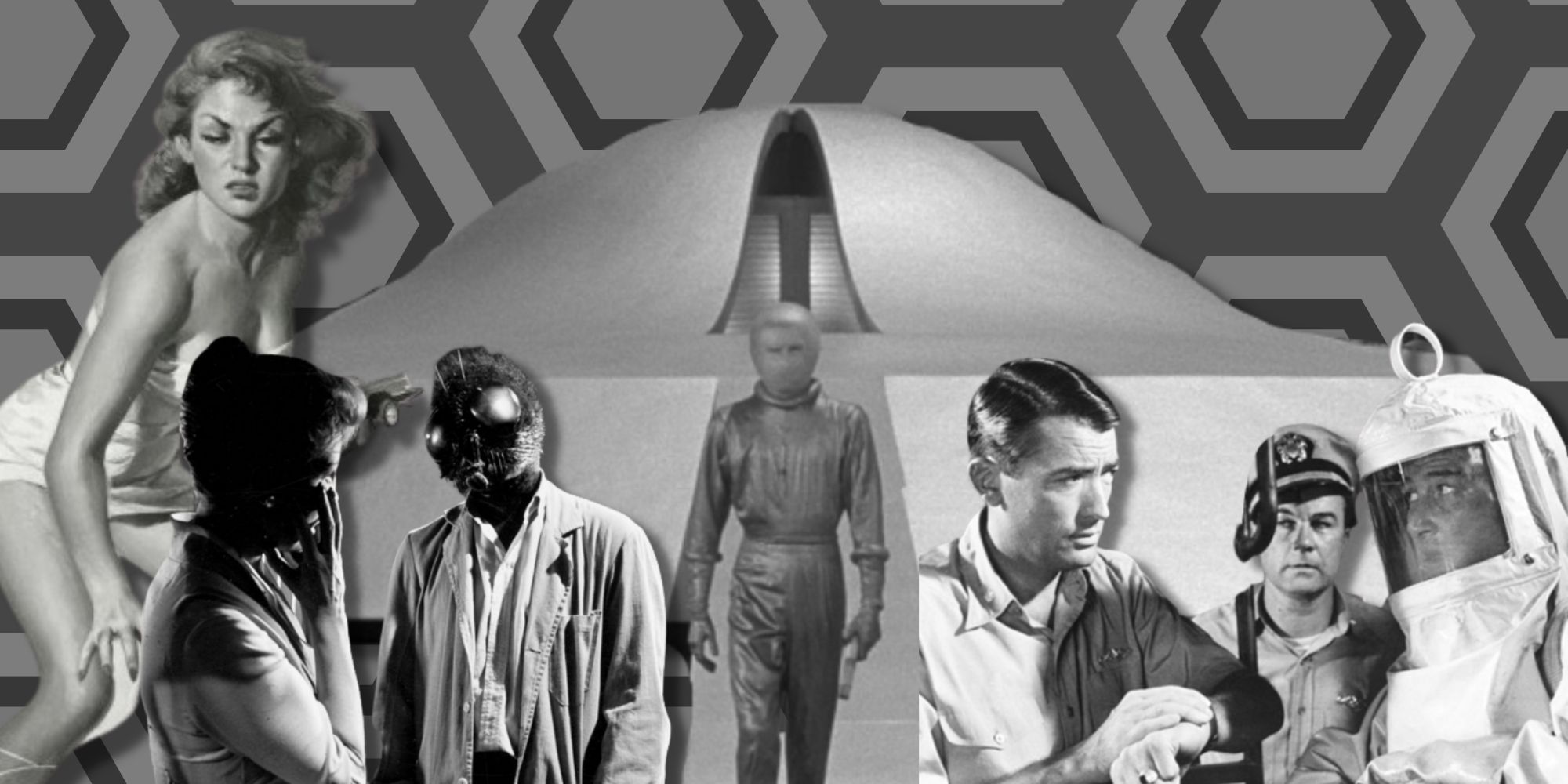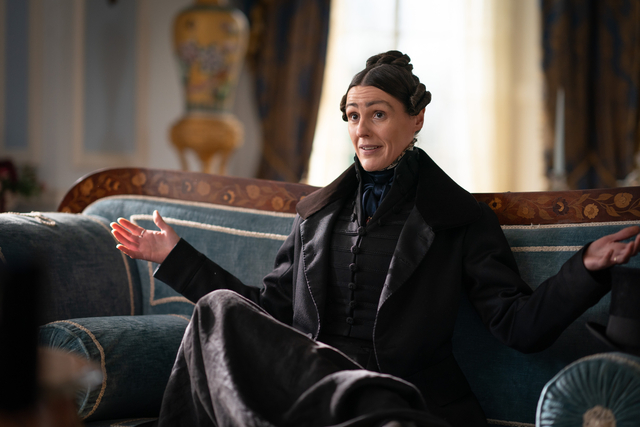Netflix’s new animated series Dead End: Paranormal Park is at times lighthearted and at others delightfully dark. The show follows two new employees, Barney (Zach Barack) and Norma (Kody Kavitha), who begin working at the Dead End attraction at Phoenix Parks, an amusement park created by actress Pauline Phoenix (Clinton Leupp). The two newbies are quickly swept into the paranormal mysteries that plague the park. As Barney and Norma work with a demon named Courtney (Emily Osment), who’s bound to the park, they start to unravel how Phoenix Parks and its owner may not be what it seems. The show isn’t afraid of its own spookiness and as the story unfolds Barney, Norma, and the audience start to see just how horrifying Phoenix Parks truly is.
Pauline Phoenix is the kind of saccharine sweet, perfectly styled person that immediately sets you on edge. Her drag queen inspired look and quirky New York accent give her a deceptively kind and glamorous appearance but they also help to impart a sense that her persona is a performance. She’s an extremely successful actress and entrepreneur who opened Phoenix Parks to further capitalize on her immense success. For most of the show we only see Pauline on screens, billboards, or as her voice gives disembodied commands over the park. Pauline is a near mythic figure in Dead End. Her control and influence over the park is absolute and from the catchphrase she gives the staff, “If you see anything strange, keep it to yourself, sugar” we see how simply and effectively she asserts that power. Something is clearly amiss, but it’s only as Norma and Barney learn more about the park and Pauline herself that they start to understand what’s so off-putting about Phoenix Parks. There are plenty of strange and terrifying aspects of Phoenix Parks, and they all lead back to Pauline. As the show unravels we see just how far Pauline has gone to secure her fame and the horrors she’s committed to maintain it.
Pauline is a suspect from the first scene of the show. An impersonator dressed as Pauline is chased through the halls of the Dead End haunted house attraction at Phoenix Parks. As she enters the hall of mirrors a distorted, ghostly apparition of a similar appearance strikes out at the impersonator, and she’s gone. We’re left with only a flier declaring her missing ominously tacked on top of other missing person’s posters.
As we see more of the park and Pauline herself, we begin to witness the inconsistencies between her public persona and the person who operates Phoenix Parks. To the world, she presents the face of an untouchable starlet, somehow maintaining her perfect looks and impeccable career for decades. Yet her exacting control over the park takes her perfect persona past the point of pretension, and instead it compounds her persona into something sinister. Her ego is apparent through the nature of the park itself: a tribute to herself and her career. Each attraction is themed after one of her films, each park announcement is narrated by her, and the park is stocked with multiple impersonators to reenact her most iconic roles. Pauline is obsessed with herself and her own fame; an obsession that goes far beyond building an egotistical monument to her own success.
But Pauline was not content with her success. She always wanted more, and she was willing to do anything to get it. Her career has been abnormally abundant. Decades of acting and she still makes waves. Decades of acting and she doesn’t look a day older. What’s her secret? Body-snatching. Pauline has been hiring impersonators and doubles for years not only to stock her park but to serve as her own personal stock of ready-made vessels. Whenever necessary Pauline will simply move on to the next host, possessing their body, and sending their soul into an in-between space where they will lose all sense of self and fade from existence. Aside from exploiting her fans for profits, she’s also been exploiting her fans’ lives. The extent of her possessions is unknown but from the number of missing posters in the park alone there are likely dozens of cases of Pauline taking promising young talents and making them her personal flesh suit.
The horror of her actions come less from what we see and more from the implications of it. We see her utter disregard for the lives of others, the lengths Pauline will go to for her own success, the last remnants of her victims psyche stuck on loop like bad animatronics in the in-between space, and eventually in the complete takeover of Norma when she offers herself as a host in a last-ditch attempt to stop Pauline. Dead End: Paranormal Park is full of lovely themes about accepting yourself and living authentically and Pauline is the complete antithesis of that. She steals the lives of others in order to artificially preserve her own. Her manipulative, selfish villainy that treats people as pawns to be moved for her own gain is comparable to other animated paranormal greats like Bill Cipher (Alex Hirsch) from Gravity Falls or The Beast (Samuel Ramey) from Over The Garden Wall. Pauline treats the lives of others as if they’re nothing more than another part of one of her theme park attractions to be manipulated and modeled however she wants.
The candy color tone of the show only helps to elevate the horror by providing sharp contrast between the visual aesthetic of the show and the actual events being depicted. We see Pauline die in Dead End. The quiet horror of her limp body on the rocky beach is punctuated by the more visceral horror of watching her soul exit her corpse to possess the friend who came to save her. The creepiness of the show is aided by the dissonance the appearance provides, as is the case for Pauline herself.
The juxtaposition of a flamboyant, glamorous person with a grotesque villainous agenda is nothing new but Dead End: Paranormal Park certainly pulls it off with its own flair. Pauline’s perfect imperfections craft a memorable persona that feels larger than life, just as she wants to be seen. Her gap tooth and exaggerated accent make her seem charming, but her domineering presence in the park slowly warps this perception of her into something more sinister. And as we meet the people who have interacted with her regularly like her ex-stunt double and her countless impersonators we see how much of her influence is not just in reverence but in fear. Her persona is deceptively bright and appealing, like the neon colors of a poison dart frog.
Pauline is horrifying because she uses the love and adoration of her fans as a weapon. Her fans are a commodity to her not only in her venture to gain capital and fame but also quite literally as livestock for her to utilize. Their lives are completely disposable to her, using each body she takes only as long as she sees fit, only to leave them an empty husk when she’s done. Pauline’s villainy has made her completely inhuman and when that truth comes to light, not even her biggest fans can reckon with her monstrous nature.
























































![Key Metrics for Social Media Marketing [Infographic] Key Metrics for Social Media Marketing [Infographic]](https://www.socialmediatoday.com/imgproxy/nP1lliSbrTbUmhFV6RdAz9qJZFvsstq3IG6orLUMMls/g:ce/rs:fit:770:435/bG9jYWw6Ly8vZGl2ZWltYWdlL3NvY2lhbF9tZWRpYV9yb2lfaW5vZ3JhcGhpYzIucG5n.webp)


